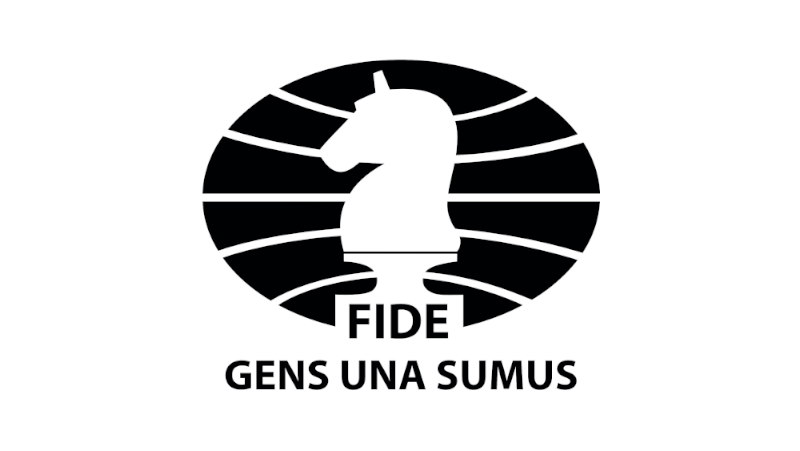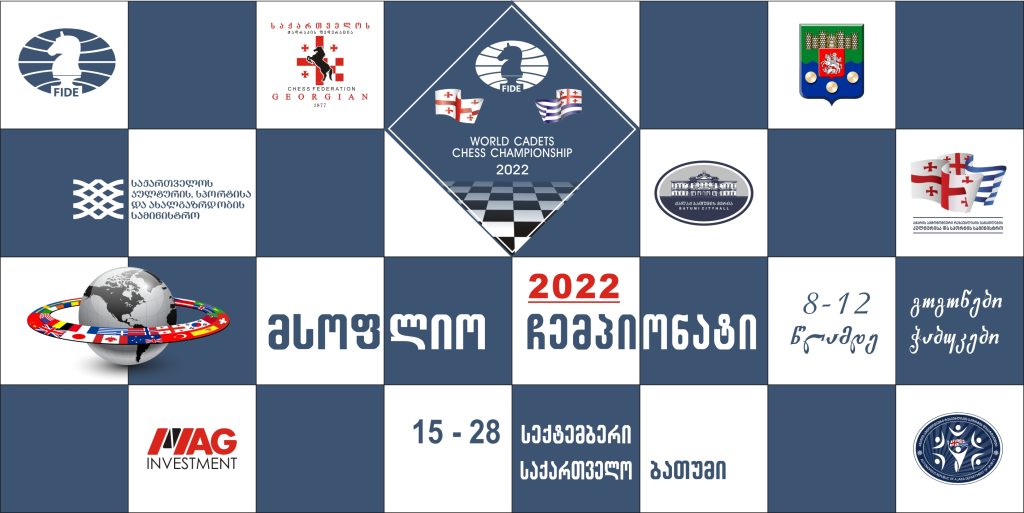Astana WGP: Goryachkina and Zhu Jiner extend their lead

“At some point, you really start to appreciate the journey more than the result.” – Alexandra Kostenuk The FIDE Women’s Grand Prix began in 2009-2011 as a series of six chess tournaments exclusively for women, forming part of the qualification cycle for the 2011 Women’s World Chess Championship. Subsequent Women’s Grand Prix series were held in 2011-2012 and 2013-2014. Chinese star GM Hou Yifan, currently number one on the FIDE Women’s rating list, emerged as the overall winner of all three of these Grand Prix: an outstanding performance. By withdrawing after the first tournament, Hou Yifan paved the way for her compatriot GM Ju Wenjun to win the 2015-2016 Grand Prix, overtaking Humpy Koneru in the final event. The fifth edition of the Women’s Grand Prix, consisting of four events during 2019-2021, was dominated by GM Aleksandra Goryachkina, who will definitely be looking to repeat her success this year. After the first five rounds, Goryachkina leads the event with one full point over the rest of the field. However, she is not alone. Zhu Jiner, a mostly unknown Chinese youth, is also performing wonderfully, tied for first with 4/5. Paehtz, Elisabeth – Kosteniuk, Alexandra (0-1) Elisabeth and Alexandra have a huge playing history together and, from what I gather at the start of the rounds, seem to be on very good terms. In my database, I have computed no less than seventy games (under different time controls): the first of them in the 1994 European Under 10 Girls Championship. Quite unbelievable! If we consider their results in classical chess, Kosteniuk has won most of their recent encounters, totalling 11.5-8.5 but, notwithstanding, definitely a tough match-up. For today’s game, Paehtz chose a rare side-line ( 8.Bd2) in the Closed d3 Ruy Lopez Opening, trying to surprise her opponent, but Kosteniuk came very well-prepared and equalised effortlessly. The game remained more or less balanced for the first thirty moves. Just when the game seemed to be heading towards a draw, although Kosteniuk did have a small edge, fate struck for Germany’s number one women player: she blundered a back-rank mate and had to resign. Although in the middle of a roller-coaster event, Alexandra was kind enough to drop in to the press centre and share her thoughts with FIDE Press Officer IM Michael Rahal. You can watch the interview here. Assaubayeva, Bibisara – Lagno, Kateryna (0.5-0.5) Lagno and Assaubayeva have battled it out in many blitz and rapid games over the past few years but had only faced each other in classical chess in the 2021 FIDE World Cup, where Lagno eliminated her opponent by 2.5-1.5. Kazakh number two women player opted for 1.d4 this afternoon and Lagno chose the Tarrasch variation in the Queen’s Gambit declined. As she mentioned later on, she thought that her opponent didn’t really know what to do. After twenty moves the position was about equal: a typical middlegame with an isolated d-pawn for Black but with opposite-coloured bishops to go with the heavy pieces. As Lagno recalled in the post-game interview, she clearly had in mind one of the famous Karpov-Kasparov games, in which the pawn structure and piece distribution was analogous – Karpov won that game with White. Zhu, Jiner – Abdumalik, Zhansaya (1-0) Zhu Jiner and Zhansaya Abdumalik have never faced each other in classical chess; in fact, they had only played two rapid games before. For today’s encounter, Abdumalik chose the popular Sicilian Sveshnikov, a double-edged weapon, in search of sharp play with the black pieces. Zhu Jiner played cautiously, following Caruana’s 7.Nd5 main line, used in the World Championship match against Carlsen. Abdumalik launched an attack with her pawns on the kingside, while Zhu Jiner corresponded on the queenside. It’s always hard to speculate where a certain player might have made a fatal mistake, but in her post-game interview Zhu Jiner mentions 27…Bg3+? – instead 27…Bxe1 is much better – as the moment where Abdumalik loses track, reaching a lost position. With this victory, Zhu Jiner leads the event with 4/5 tied with Goryachkina. Wagner, Dinara – Vaishali, Rameshbabu (0.5-0.5) Based on the Mega Chess Database, Wagner and Vaishali have only faced each other on one occasion before, namely in the 2016 World Under20 Girls Championship. On that occasion Vaishali emerged victorious. Of course, that was many years ago and it has rained a lot since then. Wagner is definitely on a roll in the last couple of games and today it didn’t seem that she was thinking of slowing down. Playing with Black, Vaishali made some inaccuracies in the Catalan Opening and soon found herself a pawn down with meagre compensation. Both 20.Nxf7 and 20.0-0 were probably better options for Wagner, whose advantage slowly dwindled to a point where the computer was already indicating equality: White did have an extra pawn, but a weak king and too many weaknesses. A draw was soon agreed. Tan, Zhongyi – Goryachkina, Aleksandra (0-1) The Chinese player has traditionally been a tough opponent for Goryachkina: 3-2 for Tan Zhongyi in classical games. However, Goryachkina did defeat her in the 2019 Women’s Candidates Tournament, which allowed her to fight for the 2020 World Championship against her compatriot, GM Ju Wenjun. In this afternoon’s game, Goryachkina repeated the same Slav variation that brought her success in the third round against Kashlinskaya. Tan Zhongyi might have missed a chance to press with 24.Rad1 instead of 24.b6 but all in all the game was equal for the most part. Just when the game seemed to be heading for a draw, Tan Zhongyi miscalculated a pawn breakthrough in the ending and was suddenly worse, close to losing. Goryachkina’s killer instinct did the rest, and she finishes the day tied for first place in the lead with Zhu Jiner. Here you can watch an interview with Aleksandra Goryachkina (in Russian with English subs) Kashlinskaya, Alina – Shuvalova, Polina (1-0) In past encounters, and obviously excluding blitz and rapid games, Shuvalova had edged out Kashkinkaya in classical chess by a very narrow 3.5-2.5 margin, although funnily
World Cadets Championships are halfway through

FIDE World Cadets Chess Championships (Open and Girls under 8, 10, 12) are halfway through in Batumi, Georgia. Six out of 11 rounds have been played, and 750+ participants, coaches, and parents are enjoying a free day. Roman Shogdzhiev is the sole leader in the Open U8 with 6 points out of 6. His rating is 1715, which is his peak so far, and he already gains 34.8 points in this tournament and shows a 2127 rating performance. A few months ago, Aaron Reeve Mendes from Canada became the FIDE World School Chess Champion in Panama. Now he’s the rating-favourite of the Open U10 and is leading on par with Gorkem Unsal from Turkey (#24 in the starting list). Both managed to win five games and draw one; a big group of participants is trailing them by half a point. The sole leader in the Open U12 section, Dinh Nho Kiet (pictured above), with maximum points so far, seems very well prepared, even though he hasn’t played a single rated game for a year before April 2022. After that, he increased his rating in almost all tournaments. Compatriots, but representatives of different federations, India and England, Charvi A and Sivanandan Bodhana drew between each other and continue leading in Girls U8. Girls U10 also has two leaders, Nika Venskaya and Evangelia Siskou. Nika Venskaya (pictured above) is progressing very rapidly. She participated in two open tournaments in August and gained 186.4 rating points! So, we can’t say that her leading in this tournament is unexpected. Second leader Evangelia Siskou, despite her young age, participated in the national team championship and famous traditional Kavala open this summer. It was probably part of the preparation to fight for the medals! Girls U12 is the only age category where three players are leading. Indian Shubhi Gupta, Elnaz Kaliakhmet from Kazakhstan, and a representative of the host country, Georgian Mgeladze Kesaria. They haven’t played against each other yet; right after free day, there will be the first battle among the leaders. Shubhi’s father Pradeep Gupta told us a little about his daughter and her chess path: “Shubhi started to play chess as a hobby at home and joined the chess club at Indirapuram Public School when she was in the first grade. In her first inter-school competition, she secured third place. With time, chess became her passion, and she started participating in state and national championships. In 2021, during the pandemic, she participated in the world and Asian level online championships and clinched silver in the Asian and Western Asian School Championships. This year, she bagged gold in U12 and bronze in U16 National Chess Championships. She also participated in OTB Western Asian Youth Chess Championship in June 2022 in the Maldives and secured three silver medals.” “This is her first time participating in OTB World Cadet Chess Championship, and we are enjoying the event and Batumi,” continues Pradeep. “She liked the sea view from her room and the view of the valley on the other side.” Shubhi is trained by her coach Prasanjit Dutta and spends almost 5-6 hours daily on chess. She has the dream of becoming a Grandmaster in the next two years and following her passion for playing chess professionally. And here is the portrait of the co-leader in Girls U8, Charvi A. She became interested in chess when she was around five years old. First, she played with her daycare friends and later started training with IM Shivananda BS. FIDE World Cadet Championships is her first major tournament over the board. Last year she participated in World and Asian Online Championships. Currently, she is training with WGM Aartie Ramaswamy and IM Shivananda and practices chess every day for 5 hours! Despite being so young, Charvi A has already won many titles, even in the elder age categories. Her best results: National Champion among girls U8 anU10 in 2022; 4th place in the Indian School Championship in the open section; Gold medalist of the Indian School Championship U7 in 2021; Individual silver and team gold medalist of Asian School Championship in 2021; Individual silver and team gold medalist of western Asian Championship U8 in 2021; Winner of Karnataka state open rapid tournament U15 in 2022. Her parents told us that her ambition is to become the World Champion, and she is enjoying her stay here in Batumi since it is her first tournament outside India. Reporting by Sofio Gvetadze Photos by Sopio Nikoladze Official website of the tournament: https://wccc2022.fide.com/

